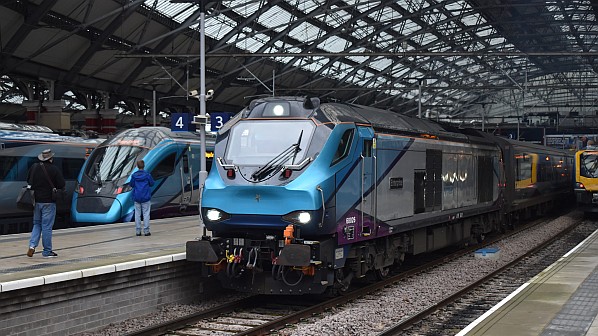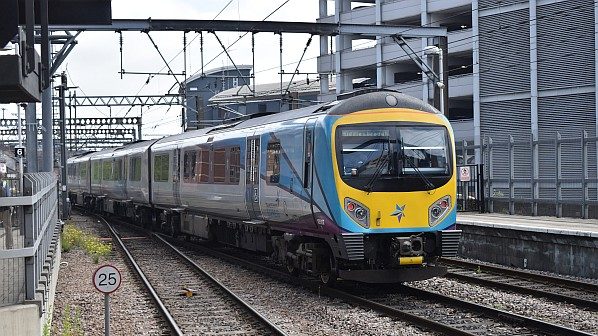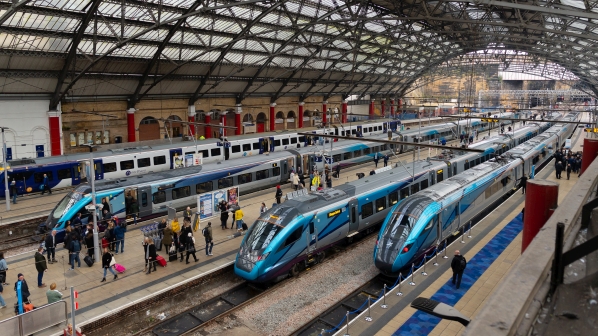THE British government announced on May 11 that it will not renew its contract with FirstGroup to operate the TransPennine Express (TPE) service in northern England and Scotland, instead introducing the government-run Operator of Last Resort, which will become active at the conclusion of the current National Rail Contract on May 28.
The government says the decision follows months of significant disruption and regular cancellations across TPE's network, which stretches from Liverpool to Manchester, Sheffield, Leeds, Middlesbrough, Newcastle, Edinburgh and Glasgow. The disruption has resulted in a considerable decline in passenger confidence.
The government and FirstGroup introduced a recovery plan in February, which has resulted in cancellations falling by 40%, with further improvements expected. Yet the cancellation rate remained at 17% in March, including trains that were withdrawn the night before they were due to run. The government says that to achieve the performance levels passengers deserve, and that the northern economy needs, both the contract and the underlying relationships must be reset.
“In my time as transport secretary, I have been clear that passenger experience must always come first,” says secretary of state for transport, Mr Mark Harper. “After months of commuters and northern businesses bearing the brunt of continuous cancellations, I’ve made the decision to bring TPE into Operator of Last Resort.”
Labour relations have been central to TPE’s woes, and both the government and FirstGroup say that performance has declined due to circumstances not wholly within the operator’s control.
Working overtime is voluntary for many drivers in Britain, and operators rely on this goodwill and staff working on their rest days to provide a full timetable. However, the withdrawal by the Aslef union from an overtime agreement in December 2021 brought to an end rest-day working. This, combined with higher absence rates following the Covid-19 pandemic, has resulted in a greater frequency of delays and cancellations.
It has also impacted driver training significantly. TPE is engaged in a major driver training programme in preparation for major route closures as part of the Transpennine Route Upgrade (TRU). Yet with industrial action continuing, delivery of this programme has been severely disrupted, limiting the number of available drivers with the required route knowledge, despite TPE “recruiting and training more drivers than ever before” and making an improved offer to Aslef on overtime working.
Under the Operator of Last Resort, services will continue to run to the existing timetable with no changes to tickets or planned services. The Department for Transport (DfT) says it is committed to a seamless transition for passengers.
“The decision to bring TPE into the control of the Operator of Last Resort is temporary and it is the government’s full intention that it will return to the private sector,” the DfT said in a statement.
The government adds that the decision will not “instantaneously resolve the challenges being faced” but will provide an opportunity to reset relationships between the operator, staff, trade unions and passengers.
“As part of this and in response to stakeholders’ calls for action, the transport secretary has asked DfT to review services in the north to help drive efficiency and find better ways to deliver for passengers across the region,” the statement says. “He also asks all interested parties, including the northern mayors and Transport for the North, to engage with the government on this work.”
First Group, which has operated the TPE service since 2004, says it is disappointed at the decision, given the investment and improvements it has made, which resulted in passenger numbers increasing from 14 million in 2004 to more than 29 million before the Covid-19 pandemic.
TPE has rolled out its Nova fleet of class 802 bi-mode multiple-units, class 397 EMUs and Mark 5A fixed-formation coaches hauled by class 68 diesel locomotives under its current contract, which commenced on April 1 2016. The service contributed £415.8m to FirstGroup’s total revenue of £4.59bn in fiscal 2022. The government had announced its intention to award FirstGroup an eight-year direct award contract for TPE in May 2022.
“Our team have worked extremely hard to improve services, including by recruiting and training more drivers than ever before,” says Mr Graham Sutherland, FirstGroup CEO. “We have also worked closely with the DfT and Transport for the North on an agreed recovery plan, as well as an improved offer on overtime working for our drivers.
“Today’s decision does not alter our belief in the important role of private rail operators in the delivery of vital, environmentally-friendly transport for customers and communities across the UK.”




